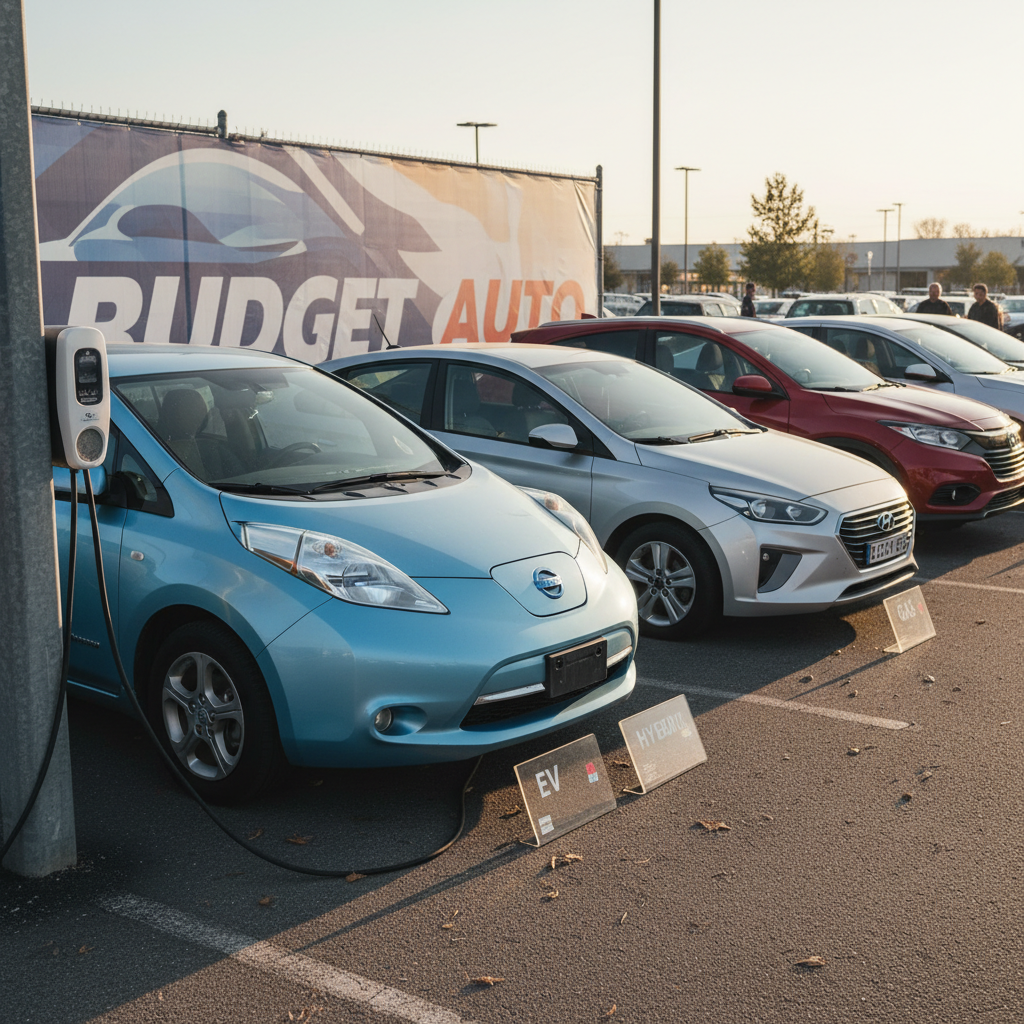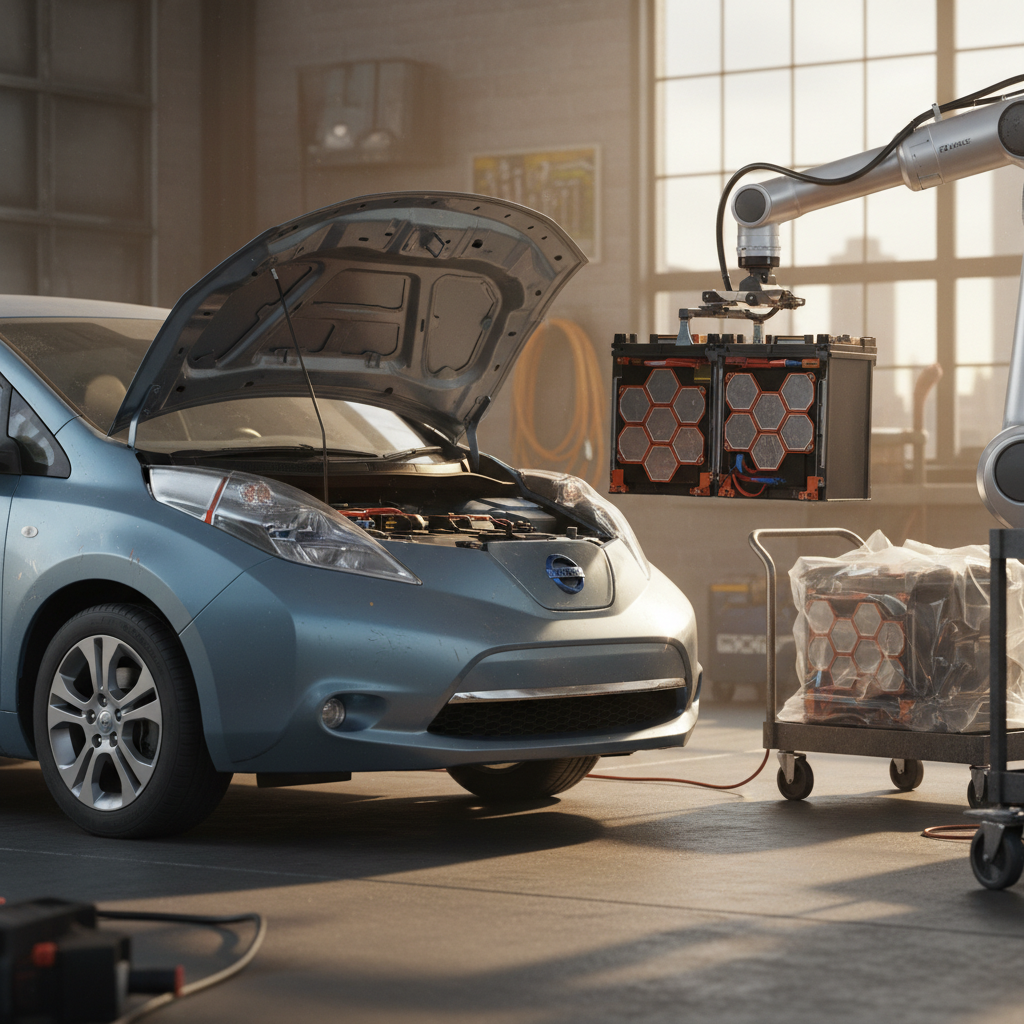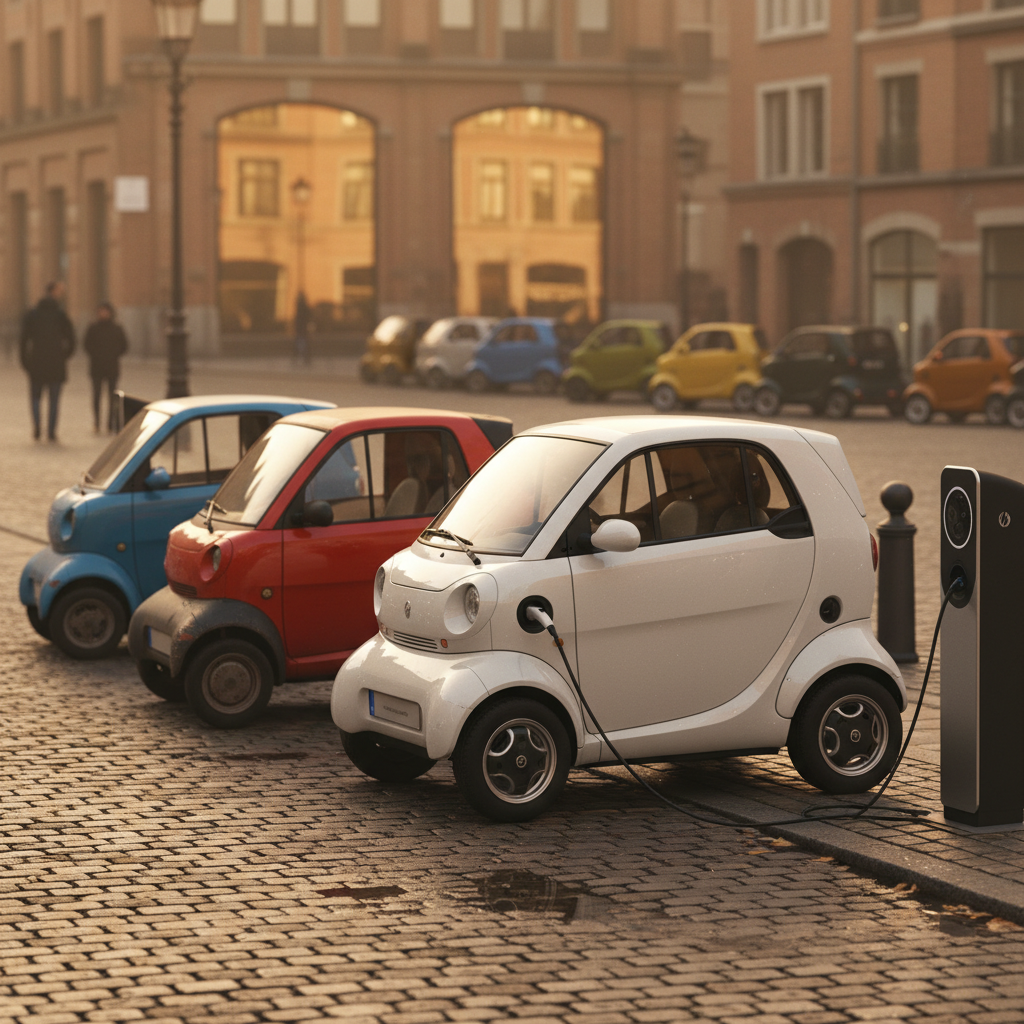If you’re shopping for second hand cars under 20000 in late 2025, you’re in a far better position than buyers just a couple of years ago. Used car prices have cooled, used EVs in particular have dropped sharply, and $20,000 can now buy you a solid electric hatchback, a practical hybrid, or a late-model gas car with modern safety tech, if you know where to look and what to avoid.
Good News for Used Buyers
Why $20,000 Is a Sweet Spot in 2025
Where $20K Fits in Today’s Used Market
At around $20,000, you’re shopping below the current average used price, but you’re not stuck in beater territory. That budget can buy a 4–7-year-old compact or midsize car with modern safety features and, in the EV world, solid usable range. The key is understanding the trade-offs: you might choose an older, well-equipped EV, a newer but basic gas car, or a hybrid that splits the difference on cost and efficiency.
Don’t Spend Your Last Dollar on the Purchase Price
Gas vs EV: What You Can Get Under $20,000
What $20K Buys in a Used EV
- Early- to mid-2020s Chevrolet Bolt EV, Nissan Leaf, Hyundai Kona Electric, Kia Niro EV, depending on mileage and market.
- Typical ranges from about 120–240 miles when new; real-world used range will be somewhat lower.
- Lower running costs: electricity is generally cheaper per mile than gasoline, and there’s no oil to change.
- Potential trade-off: more depreciation and a bigger question mark around battery health.
What $20K Buys in a Used Gas or Hybrid
- Well-equipped compact/midsize sedans and crossovers from Toyota, Honda, Hyundai, Kia, Mazda, and others.
- Plenty of certified pre-owned (CPO) options with some factory warranty remaining.
- Hybrids like Toyota Prius and Hyundai Ioniq Hybrid often fall inside this budget with high mpg.
- Simpler refueling, but higher long-term fuel and maintenance costs than a comparable EV.
Think in Monthly Cost, Not Just Purchase Price
Best Used Electric Cars Under $20,000
Because used EV prices have dropped faster than gas cars, there’s now a short but meaningful list of used electric cars under 20000 that are worth your attention. Availability and pricing will vary by region and mileage, but these models routinely appear in or near this budget range in many U.S. markets.
Common Used EVs You Can Find Around or Under $20,000
Approximate used price ranges in late 2024–2025 U.S. listings. Local markets and vehicle condition can push prices higher or lower.
| Model | Typical Used Price Range* | EPA Range When New | Key Strength | Biggest Watch-Out |
|---|---|---|---|---|
| Chevrolet Bolt EV (2017–2021) | $14,000–$20,000 | ~238 miles | Excellent range and efficiency for the money. | Early battery recall history, verify recall work and get a battery report. |
| Nissan Leaf (2018–2022) | $8,000–$18,000 | ~149–226 miles | Often the cheapest used EV; great city car. | Air-cooled battery can degrade faster in hot climates, range may be significantly lower than original spec. |
| Hyundai Kona Electric (2019–2021) | $14,000–$20,000+ | ~258 miles | Strong range, compact crossover practicality. | Limited fast-charging speed and some early recall history. |
| Kia Niro EV (2019–2021) | $13,000–$20,000+ | ~239 miles | Practical interior, hatchback versatility. | Check DC fast-charging history and battery condition carefully. |
| BMW i3 (2017–2019 BEV/REx) | $10,000–$18,000 | ~114–153 miles | Premium feel, distinctive design, great for urban use. | Smaller battery and shorter range; parts and service can be pricier. |
Focus less on the exact number and more on the ballpark and trade-offs for each model.
About Those Price Ranges

Hybrids and Efficient Gas Cars Worth a Look
If an EV Doesn’t Fit, These Often Do
Three types of budget-friendly second hand cars under $20,000 that still keep running costs low.
Compact Hybrids
Who they fit: High-mileage commuters and rideshare drivers.
- Toyota Prius (2015–2019)
- Hyundai Ioniq Hybrid
- Honda Insight
These cars routinely return 45–55 mpg and are easy to live with. Their battery packs are smaller and generally lower risk than full EV packs.
Efficient Gas Compacts
Who they fit: Drivers who want simple ownership and low purchase price.
- Honda Civic
- Toyota Corolla
- Mazda3, Hyundai Elantra
Under $20,000 you can often find late-model, low-mileage examples with modern safety tech and reasonable operating costs.
Older Crossovers & Sedans
Who they fit: Families needing space on a strict budget.
- Toyota RAV4, Honda CR-V
- Hyundai Tucson, Kia Sportage
- Midsize sedans like Camry and Accord
You’ll trade some fuel economy and tech for room and comfort, but reliability can remain excellent.
Don’t Chase the Last Gadget
Battery Health: The Make-or-Break Factor for Cheap EVs
With second hand electric cars under $20,000, battery health is the single biggest variable. A car with a strong pack and a realistic 180–220 miles of range can be a bargain. The same model with a tired battery that only manages 90 miles on the highway might be overpriced at half the money. Unfortunately, the battery’s real condition isn’t always obvious from listings or even a quick test drive.
How to Judge Battery Health on a Budget EV
1. Ask for a professional battery report
Many EVs can have their battery pack scanned for state of health (SoH). At Recharged, every vehicle includes a <strong>Recharged Score</strong> battery health report so you know exactly how the pack is performing before you buy.
2. Compare estimated range to original spec
Look up the car’s original EPA range and compare it to the current estimate at a full charge. A 10–20% drop is normal on older EVs; much more than that deserves deeper investigation or a lower price.
3. Check for recall and warranty history
Some EVs, like early Chevrolet Bolts, had large-scale battery recalls. Confirm that all recall work has been performed and ask whether the battery was replaced under warranty.
4. Review charging patterns
Frequent DC fast charging and lots of miles in very hot climates can accelerate degradation. A car primarily charged at home on Level 2 with moderate mileage is generally a safer bet.
5. Test a realistic drive route
If possible, drive the car on the roads you actually use, hills, highway, and stop-and-go. Watch how quickly the range estimate drops relative to miles driven.
6. Use marketplace tools, not just your gut
Shopping through an EV-focused platform like <strong>Recharged</strong> gives you verified battery diagnostics, price transparency, and guidance from EV specialists instead of guesswork on a random classified listing.

The Expensive Mistake to Avoid
Why Price Is Only Half the Story: Total Cost of Ownership
Shoppers focus on the sticker amount, but smart buyers think in terms of total cost of ownership: purchase price, financing, insurance, energy, maintenance, and eventual resale. That’s where many second hand cars under $20,000, especially electric ones, can punch above their weight.
EV Cost Picture
- No oil changes, fewer moving parts, and less brake wear thanks to regeneration.
- Electricity usually costs less per mile than gasoline, especially if you can charge at home on off-peak rates.
- Higher depreciation means you often get more car for the same money when buying used.
- Watch out for higher insurance in some markets and potential out-of-warranty repair costs.
Gas/Hybrid Cost Picture
- Lower upfront complexity and more shops able to service them.
- Hybrids offer excellent fuel economy with relatively modest purchase prices.
- Maintenance schedules are more familiar, fluids, timing components, exhaust, etc.
- Over a long period, fuel and repairs can eat the savings of a lower purchase price.
Run the Numbers for Your Real Life
How to Shop Smart for Second Hand Cars Under 20000
Finding the right car in this price band isn’t just about scrolling listings faster; it’s about using a process that protects you from surprises. Whether you end up in a used EV or a conventional car, a structured approach will save you time and money.
Step-by-Step Buying Process for $20K and Under
1. Define your real daily range and space needs
List your typical commute, weekend trips, and cargo needs. A 50-mile daily commute with occasional road trips might be perfect for a used EV; a long rural commute without home charging might call for a hybrid.
2. Set an all-in budget, not just the car price
Include tax, title, registration, insurance changes, and an immediate maintenance fund. Then work backward to a car price that keeps you under that total cap.
3. Shortlist 3–5 models, not 20
Pick a handful of realistic candidates, say, Bolt EV vs. Prius vs. Civic, so you can learn their common issues, typical price ranges, and what good condition looks like.
4. Pull history and inspection reports
Review the VIN history for accidents, rental/fleet use, and mileage inconsistencies. Pair that with a third-party inspection or a trusted EV-savvy mechanic, especially for older vehicles.
5. Test drive with a checklist, not just vibes
Turn off the radio. Listen for suspension clunks, feel for brake pulsation, confirm all driver-assist and infotainment features work as advertised, and in an EV, pay attention to real-world energy use.
6. Compare offers side by side
Don’t just fall in love with one car. Compare at least two or three options on price, mileage, battery health, feature content, and total cost projections. Platforms like <strong>Recharged</strong> make this easier by providing standardized <strong>Recharged Score</strong> reports across vehicles.
Financing, Trade-Ins, and Stretching Your $20K Budget
If you’re like most buyers, you’re not dropping a suitcase of cash on the salesperson’s desk. Financing and trade-ins can make the difference between settling and landing in a car you’ll be happy with for years.
Money Moves That Make a $20K Car Easier to Afford
Four levers you can pull before you sign anything.
Pre-Qualify Without Hurting Your Credit
Before you shop, see where you stand. Many online lenders and platforms like Recharged let you pre-qualify for financing with a soft check that doesn’t ding your credit score. That gives you a realistic monthly payment target.
Compare Loan Terms, Not Just Rate
A slightly higher interest rate with a shorter term can cost less overall than the lowest rate stretched over 84 months. Aim to keep used-car loans in the 48–60 month range when you can.
Use Your Current Car Wisely
Your existing vehicle is an asset. Getting an instant offer or consignment deal through a specialist like Recharged can put more cash into your down payment than a quick, lowball trade-in.
Factor in Delivery and Convenience
With a fully digital buying experience and nationwide delivery, you can widen your search beyond your zip code. Sometimes the right $18,500 EV a few states away beats the wrong $19,900 car down the street.
How Recharged Fits In
FAQ: Second Hand Cars Under $20,000
Frequently Asked Questions
The Bottom Line: Turning $20K into the Right Car
In 2025, second hand cars under 20000 cover a surprisingly wide spectrum, from humble compact sedans to capable used EVs with genuine road-trip range. The difference between a car you’ll love and one you’ll regret comes down to doing your homework: understanding battery health, total cost of ownership, and how a specific vehicle fits your real driving life.
If an electric car is on your shortlist, consider shopping through an EV specialist like Recharged, where every vehicle includes a Recharged Score battery report, transparent pricing, and guidance from people who live and breathe EVs. Combine that expertise with a clear-eyed budget and a solid inspection, and your $20,000 can go a very long way.



